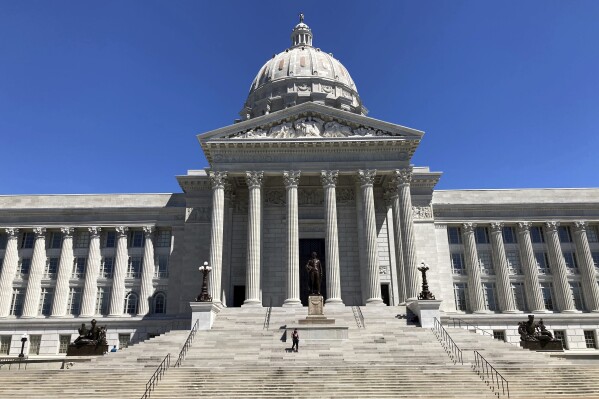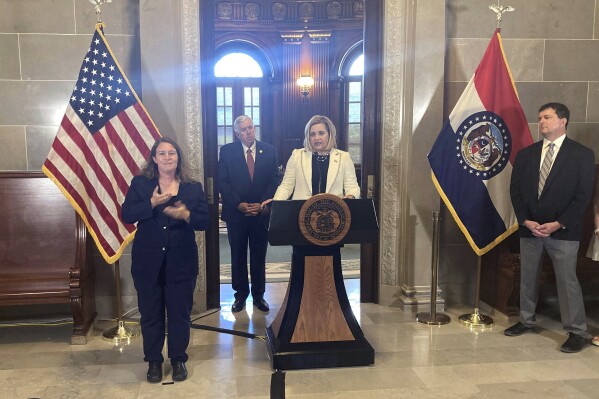Missouri lawmakers fail to override Gov. Parson’s vetoes, and instead accept pared-back state budget
JEFFERSON CITY, Mo. (AP) — Missouri lawmakers on Wednesday failed to override any of the governor’s budget vetoes, conceding to a pared-back budget that is $555 million slimmer than they passed.
The GOP-led Legislature did not attempt to override Republican Gov. Mike Parson on most of his budget cuts during its abbreviated annual September session focused on vetoes.
But House lawmakers made several fruitless efforts to spare extra funding for law enforcement, seniors and mental health services. Senators gaveled in briefly Wednesday and made no effort to override Parson, upending the House’s work.
On Tuesday, Parson said lawmakers put “quite a few things in the budget — more than normal” — and that he made numerous line-item vetoes to try to focus the spending on things that would have statewide impacts.
 A Missouri court upholds state Senate districts in the first test of revised redistricting rules
A Missouri court upholds state Senate districts in the first test of revised redistricting rules
 Big 12 aims for 3-game sweep of mighty SEC after Longhorns’ win at Alabama
Big 12 aims for 3-game sweep of mighty SEC after Longhorns’ win at Alabama
 Missouri governor appoints appeals court judge to the state Supreme Court
Missouri governor appoints appeals court judge to the state Supreme Court
“But I have to look at things beyond one House district or one Senate district,” Parson said. “At some point, everything can’t be a priority, and we have to make a decision.”
Parson in June pointed out that lawmakers went $1.7 billion over his budget proposal, although Missouri this year had a historic budget surplus.
House lawmakers voted to override Parson’s veto of 20% raises for Highway Patrol workers, compared to 8.7% pay hikes that Parson approved for all state workers.
Parson allowed enough money through to give Highway Patrol workers targeted raises of around 11%, the Senate Appropriations Committee leader said on the floor Wednesday.
At least one House member said he voted “present” on many of the veto overrides that he supports because he did not expect action in the Senate.
“We’re going to pass things out of here, and it’s going to go over the Senate and nothing’s going to happen,” Republican Rep. Jim Murphy said. ”I just don’t like futility.”
House Republicans on Tuesday also voted to nominate Majority Floor Leader Rep. Jon Patterson to be the next House speaker. Current Speaker Dean Plocher cannot run for re-election because of term limits.
The full House must elect a speaker in January 2025. But because Republicans control the chamber, the GOP nominee is expected to win easily.
——
Associated Press correspondent David A. Lieb contributed to this report.
Disclaimer: The copyright of this article belongs to the original author. Reposting this article is solely for the purpose of information dissemination and does not constitute any investment advice. If there is any infringement, please contact us immediately. We will make corrections or deletions as necessary. Thank you.





